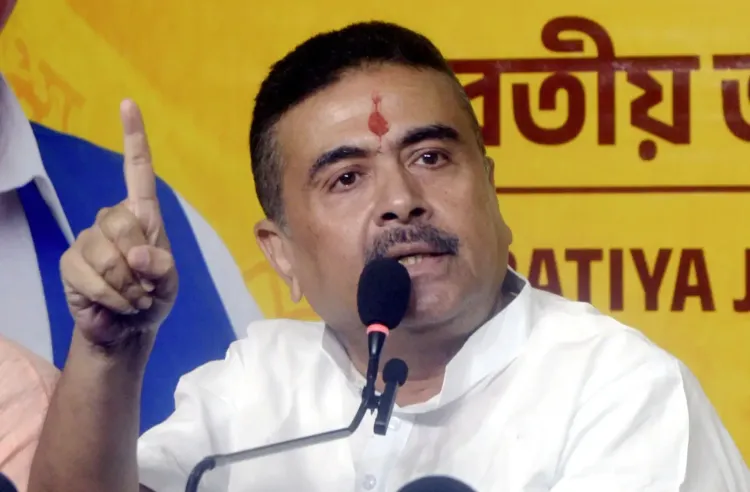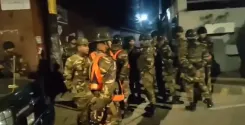Will the BJP's SIR 2.0 launch effectively eliminate fake voters?

Synopsis
Key Takeaways
- Election Commission launches SIR 2.0 in 12 states.
- Focus on removing fake and duplicate voters.
- Political leaders support the initiative.
- Historical context of SIR revisions since Independence.
- Importance of maintaining accurate electoral rolls.
New Delhi, Oct 28 (NationPress) The Election Commission of India (ECI) has initiated the second phase of the Special Intensive Revision (SIR) of voter lists in 12 States and Union Territories, including the election-bound Tamil Nadu, West Bengal, Kerala, and Puducherry. This effort is aimed at ensuring cleaner and more precise electoral rolls.
In response to this development, leaders from the Bharatiya Janata Party (BJP) and Janata Dal (United) have expressed their support for the initiative, deeming it a vital measure to eliminate fake and duplicate voters.
Suvendu Adhikari, the Leader of the Opposition in the West Bengal Assembly, stated to IANS, “We must eradicate fake voters. This isn't a novel endeavor—voter list revisions have occurred eight times since our independence. Such revisions are essential to guarantee that elections are conducted with clean and accurate voter rolls.”
BJP leader Kapil Dev Aggarwal commented, “The outcome of the SIR in Bihar reveals the truth. Despite persistent claims of ‘vote chori’ by Rahul Gandhi, Mamata Banerjee, and others, their allegations have been shown to be unfounded. If the Election Commission undertakes SIR surveys to curb fraudulent voting and remove bogus voters, we wholeheartedly support that. No political party should contest such a transparent initiative.”
Sharing similar sentiments, BJP leader and Karnataka MLC C.T. Ravi remarked, “This revision is crucial. I’ve learned that names of some Bangladeshi nationals have been included in the lists. Allowing voters from Italy or Pakistan is unacceptable in India’s democratic framework. Our Constitution does not allow such irregularities.”
BJP leader Chandrashekhar Bawankule noted inconsistencies in voter data, saying, “New names are frequently added to voter lists, yet deletions are seldom made. Unless the Election Commission undertakes door-to-door verification and seeks legal support where necessary, the lists will continue to be inaccurate. In my constituency, there are 540,000 voters when ideally, there should be around 250,000. Many individuals have relocated to suburban areas, yet their names remain in both places. The ECI’s SIR initiative will finally rectify such discrepancies. I commend the Commission for addressing a long-standing demand.”
Another BJP leader, T.S. Srivatsa, also praised the initiative, stating, “We support this decision. It will benefit all political parties. Genuine voters will not face issues, while fake voters will be identified and removed.”
Chhattisgarh Chief Minister Vishnu Deo Sai remarked, “This is an admirable step. We welcome the Election Commission’s decision and hope that the SIR process is implemented effectively.”
JD(U) leader Rajeev Ranjan Prasad endorsed the nationwide rollout of SIR 2.0, asserting, “The SIR was successfully implemented in Bihar, ensuring transparency and fair voting. The ECI’s renewed commitment to clean and accurate voter lists is a commendable move. No eligible voter should be overlooked.”
During a media briefing about the voter revision exercise, Chief Election Commissioner (CEC) Gyanesh Kumar congratulated the polling officials and electors for the successful SIR in Bihar and elaborated on the process and rationale behind this ‘purification drive’ conducted periodically.
The CEC explained that since independence, the SIR has been conducted in the country eight times, from 1951 to 2004, with the last revision occurring in 2004. He emphasized that political parties have consistently urged for voter verification to ensure only legitimate voters participate in the electoral process.
He noted that it is crucial to cleanse the electoral rolls periodically due to reasons such as voter duplication and the removal of names of individuals who have either passed away or permanently relocated out of the election-bound state.










